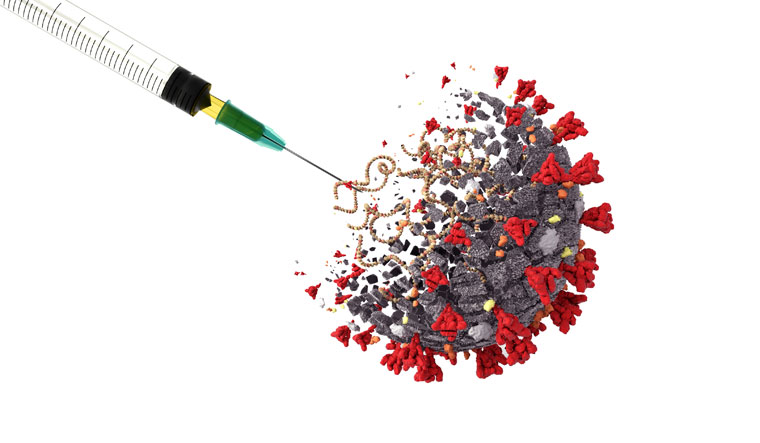The United Kingdom will soon on start rolling out the Pfizer/BioNTech vaccine against COVID-19, with inoculations starting next week among highest-priority sections of the public. The Pfizer/BionTech formula is an mRNA vaccine that does not use the viral proteins for immunisation; instead, it is encoded with the mRNA (messenger RNA, which consists a genetic code) instructions for the coronavirus’s signature spike protein. Thus, human cells create the foreign protein, alerting the immune system, and help the body recognise the entry of the virus in all its forms. This is the first time an mRNA vaccine has ever been approved for use in humans.
Pfizer and BioNTech had reported final trial results on November 18 that showed its vaccine was 95 per cent effective in preventing COVID-19, with no major safety concerns. The vaccine is being manufactured in BioNTech's German sites, as well as Pfizer's manufacturing site in Belgium.
The UK government has formally accepted the recommendation from the drug regulators MHRA. Prime Minister Boris Johnson welcomed the "fantastic news" and confirmed that the vaccine will begin to be made available from next week. The vaccines require two doses 21 days apart, with strong immunity response kicking in after seven days of the second dose. The MHRA said it will monitor the data once the vaccines are deployed among the British public.
How will the vaccine plan work?
The UK's Joint Committee on Vaccinations and Immunisations (JCVI) has published its advice for the priority groups to receive the vaccine, including care home residents, health and care staff, the elderly and the clinically extremely vulnerable. Elderly people in care homes and care home staff are top of the priority list, followed by over-80s and health and care staff. Further decisions will be made after close scrutiny of effectiveness and possible side-effects. Whether injection of the COVID-19 vaccine turns to be an annual affair remains to be seen, all depending on its immunogenicity.
Is it compulsory that everyone take the vaccine? The UK government has said that it is an individual's choice to get inoculated or not, but they are strongly recommending that everybody take the vaccine if their "fundamental freedoms are to be restored".
The process is expected to continue at least till February 2021. Immunity is expected to kick in within a month, though it still remains to be seen how long it will last.
The country has put in orders for 40 million doses, which can inoculate 20 million people, since each person gets two doses of the vaccine 21 days apart. This means that UK will have to find other vaccines for all 50 million or so people who are eligible for shots. Apart from Pfizer/BioNTech, UK will need other vaccines. American biotechnology company Moderna and University of Oxford/AstraZeneca candidates are also under consideration.
One of the drawbacks of the Pfizer vaccine is its issue associated with logistics. The vaccine must be stored at around -70 degree C and be transported in special boxes, packed in dry ice. Once delivered, it can be kept for up to five days in a fridge. The UK government has said that it remains confident that the cold supply chain needed to distribute the vaccine will not cause any problems or delays. When the vaccine is stored in a fridge, it has an effective life of up to five days at temperatures of 2 to 8 degrees, which will allow it to be easily stored at distribution centres.
-Inputs from agencies


